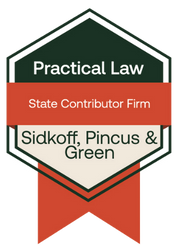Non-Compete vs. Non-Solicit: What Is the Difference, and Why Does it Matter?

Whether operating a small startup or managing a well-established company, it is critical to safeguard confidential information, client relationships, and employee loyalty. Two commonly used legal tools in achieving this goal are non-compete agreements and non-solicitation agreements. While they are often mentioned together, these two types of restrictive covenants serve distinct purposes and have significantly different legal implications.
What Is a Non-Compete Agreement?
A non-compete agreement is a contractual clause or standalone agreement that restricts an employee, independent contractor, or business partner from engaging in a competing business after leaving the company. Typically, non-compete provisions limit the geographic area, industry, and timeframe in which the individual is prohibited from competing.
The primary purpose of a non-compete agreement is to prevent former employees or associates from using insider knowledge to directly compete against the business that trained them or gave them access to valuable resources. This can include business strategies, pricing models, trade secrets, or proprietary customer data.
In Pennsylvania, non-compete agreements are enforceable under certain conditions, but courts scrutinize them carefully. To be valid, a non-compete must protect a legitimate business interest, be supported by adequate consideration, and be reasonably limited in scope and duration. Overly broad or punitive restrictions are unlikely to hold up in court.
What Is a Non-Solicitation Agreement?
A non-solicitation agreement is more targeted in nature. Rather than restricting an individual from working in the same industry or geographic region, a non-solicit clause focuses on preventing that person from actively pursuing the business’s clients, customers, vendors, or employees after the relationship ends.
Non-solicitation agreements are commonly used to stop former employees from trying to take clients with them to a new employer or to prevent them from recruiting coworkers to join a competing business. In many cases, non-solicit clauses are viewed as more balanced and fair than broad non-compete clauses, making them more likely to be enforced by courts.
As with non-competes, Pennsylvania law requires that non-solicitation agreements be reasonable in scope and duration. Courts will look at the specific language, the business interests being protected, and the practical impact on the former employee’s ability to earn a living.
Key Differences and Strategic Use
The key difference between the two lies in the breadth of the restriction. A non-compete restricts where and with whom a person can work, while a non-solicit restricts who they can contact or recruit after leaving a business. Because non-compete agreements can limit a former employee’s ability to find work entirely within a particular industry or region, they are subject to more legal challenges.
Business owners must evaluate their goals carefully before including either provision in a contract. If the main concern is preserving a client base or protecting existing business relationships, a non-solicitation clause may be more appropriate and more likely to be enforced. If the concern is a direct competitor poaching a key employee and using confidential business strategies to undercut pricing or services, a non-compete clause may be necessary.
Why These Agreements Matter to Philadelphia Business Owners
In a competitive market like Philadelphia, retaining clients and talented employees can make or break a business. Companies invest substantial time and money in building these relationships. When an employee leaves and takes clients or colleagues with them, the business can suffer immediate and lasting harm.
Using well-crafted non-compete and non-solicit agreements can serve as a preventive measure to deter unfair competition. They also offer legal recourse if a former employee or associate breaches the terms of the agreement. However, poor drafting or overly aggressive restrictions can backfire, leading to unenforceability or costly legal disputes.
Pennsylvania law continues to evolve on the issue of restrictive covenants. Courts are increasingly reluctant to enforce non-competes that they perceive as too broad or harmful to a worker’s ability to earn a living. This trend makes it all the more important to tailor agreements to the specific role, industry, and legitimate interests involved.
Philadelphia Business Attorneys at Sidkoff, Pincus & Green P.C. Work to Protect Your Business
Speak with the Philadelphia business attorneys at Sidkoff, Pincus & Green P.C. about how we can help you. Contact us online or call us at 215-574-0600. Located in Philadelphia, we proudly serve clients in South Jersey, Pennsylvania, and New Jersey.



















